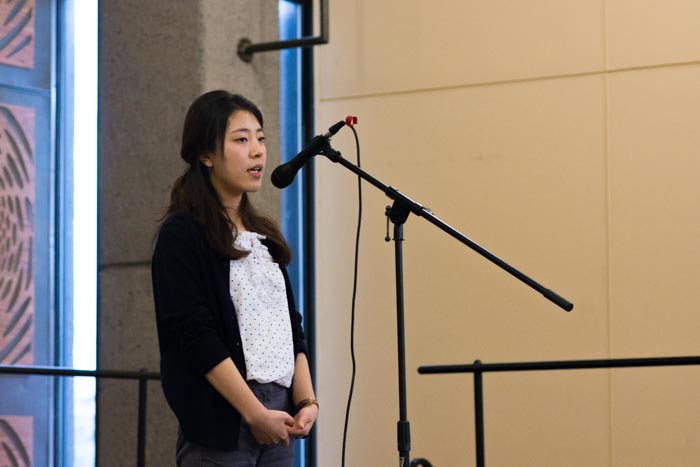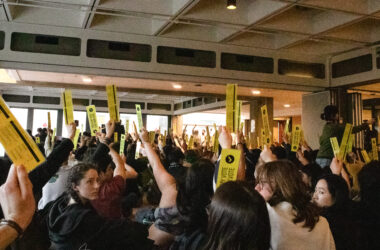On Oct. 28, the McGill Chapter of HanVoice, an organization that promotes awareness and acceptance of North Korean refugees, held its biggest event of the year, titled ‘What Would You Ask A North Korean?’. The panel featured North Korean defector Ellie Cha, whose family escaped the regime in 2012. Cha has been residing in South Korea and is currently studying at Korea University in Seoul. She is also participating in HanVoice’s Pioneer Project, which aims to empower the North Korean refugee community through leadership experience at the Canadian Parliament.
McGill Political Science Assistant Professor Juan Wang opened the talk by describing the state of nuclear weapon diplomacy across the globe. Historically, North Korea and China have been allied against the United States. Yet, with the U.S. displaying opening aggressive behaviour, Chinese society becoming increasingly capitalist, and North Korea seeking to be militarily self-sufficient through nuclear weapons, Wang emphasized that Kim Jong Un is in a precarious position.
“China needs to desperately get out of the dilemma it is facing,” Wang said. “If it backs down from the sanctions against North Korea, […] then China would lose face as the supposedly important player in the peninsula. [ However,] if it strengthens its sanctions, it may provoke a reckless neighbour to escalate the [nuclear] situation.”
Cha then took the stage to discuss how her aunt disappeared and her father, the vice-president of North Korea’s leading mining companies, lost favour in the government. This did not bode well for Cha’s family, and her father hired Vietnamese smugglers to get them out. Cha has since become a human rights advocate for the North Koreans. During the talk, she shared her insights on how to support those currently living under the regime.
“[People can help by communicating with] North Korea […] because now we have very limited accessibility about our world, that’s the reason why the North Korean government still keeps their [power],” Cha said. “The second thing is you can support their basic needs. In Canada there is [First Steps, a charity,] to [send food….] The last thing is you can support the North Korean refugees, and actually you are doing it here by listening to my stories.”
According to Cha, the North Korean government’s propaganda does not accurately portray what it is like to be a citizen. While the regime imposes its will through human rights violations, the people have become disenchanted with its ideology and simply try to survive however they can.
“In terms of the ideological world, nobody has dreams of success,” Cha said. “But in reality, we have dreams. Someone [might] want to make lots of money, while others just hope to have a very common life. But the most important thing is we are still living in the same world, like you, except for the ideological concepts.”
The indignities of Cha’s journey as a refugee were not easy and she felt that it severely drained her family.
“Yes, the world feels bigger, but there is no space for a refugee,” Cha said. “Me and my family are still searching for a place to call home [….] I live in the South, but my home is in the North. I hope to end up in a free North Korea.”
Danny Yeo, former president of Queen’s University’s chapter of HanVoice, also spoke at the panel, providing context for understanding the plight of North Korean refugees.
“Sometimes North Korean refugees may feel disconnected because of their accent, which is different from that of South Koreans,” Yeo said. “[And] if rocketman does something stupid, then a North Korean kid is bullied and blamed.”









